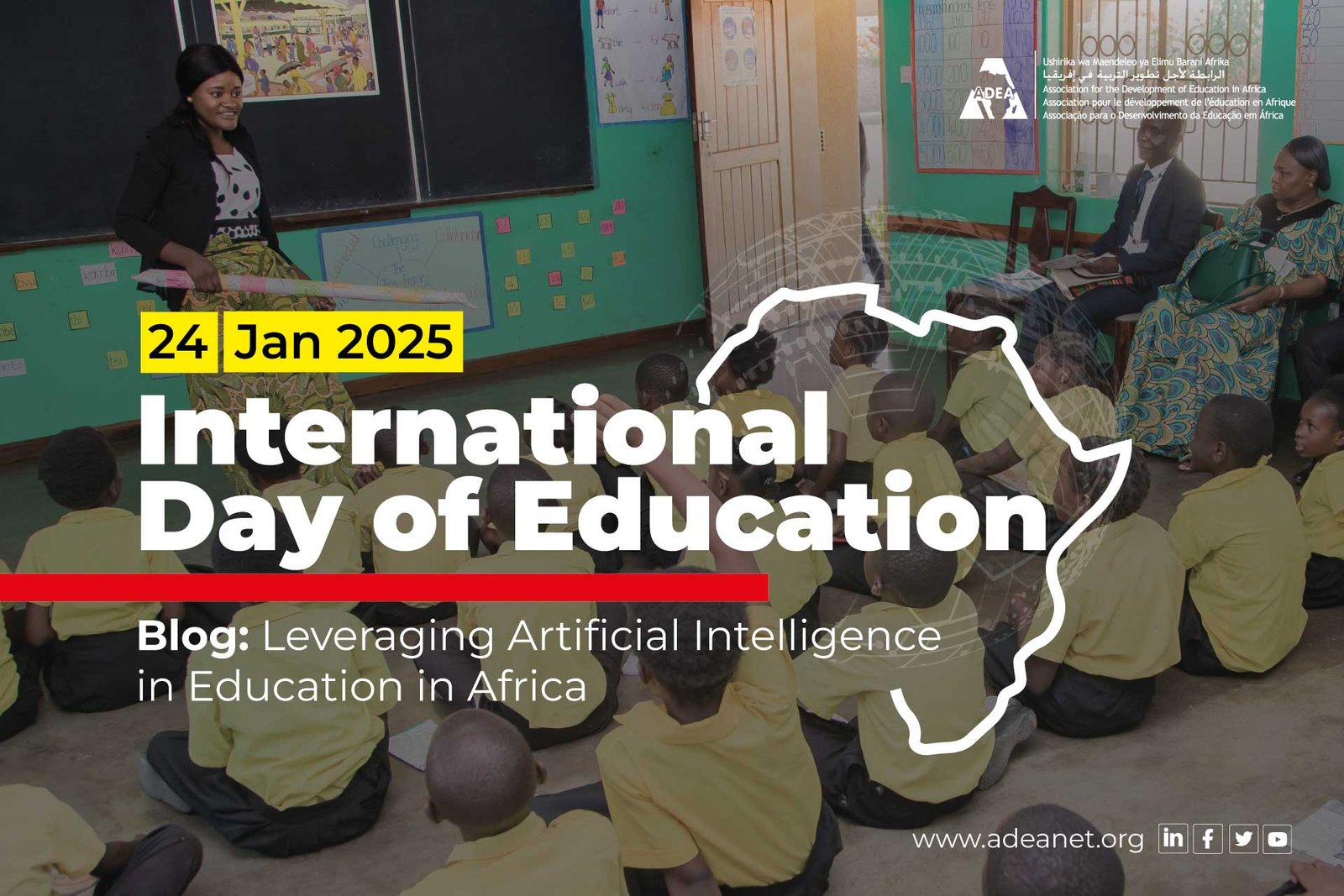International Day of Education 2025

We are currently experiencing some of the most fascinating times in human history. Artificial Intelligence (AI) is causing a paradigm shift in humanity and our existence. The mention of AI sparks mixed reactions of excitement, opportunities, fear, and even anxiety. It seems to get everyone on the edge of their seats - whether in the fields of education, health, governance, human development, agriculture, or gender. Yet, hidden in AI is its potential to transform our society.
Today’s world is an AI-enabled world.
AI in education is currently witnessing rapid growth, particularly in Africa that is becoming a key frontier for AI innovation. This is evidenced by many multinational companies establishing laboratories and research hubs on the continent such as Google’s first AI Research Centre in Ghana, Edu AI Hub (a Nigeria-based research network on responsible AI innovations that seek to advance education across Africa), and AI Research Center based in Congo Brazzaville. The rapid growth of AI is also evidenced in the many creative teaching and learning solutions and adaptations such as Classcraft, Edthena, Carnegie learning, and AI-driven chatbots such as mainstay.
To commemorate this year’s International Day of Education, this blog highlights three imperatives necessary to bring to life the limitless possibilities AI offers to education.
As the boundaries between humans and AI continue to blur and AI-driven systems become more sophisticated, the theme for this year’s International Day of Education – "AI and Education: Preserving Human Agency in a World of Automation" – is apt. It raises critical questions about how to preserve, redefine, and elevate human agency in an age of technological acceleration. The theme challenges us to reflect on the power of education to equip individuals, communities, and nations to understand, navigate, and influence technological advancement in ways that are beneficial and sustainable. It also provides a rallying point for collaboration, cooperation, and enduring partnerships between and among African countries as we try to co-create innovative solutions in an automated world.
In Africa, building and strengthening teachers’ capacities, leveraging strategic partnerships, and cultivating responsible use of AI in education are just three of the many opportunities AI implementation can have on education.
- Strengthening capacities of teachers – Humans play a critical role in using AI to create value and solve problems. Within the education ecosystem, teachers are vital to the development of learners. They are the first line of service providers for learners. The role they play in contributing to accessible, equitable, and inclusive quality education cannot be underestimated. AI can support teachers in this process. In addition, the growing trend and calls for the creation of a curriculum worldwide for AI literacy require comprehensive capacity strengthening of teachers and education practitioners to equip them with adequate tools to use AI in the teaching and learning process.
- Leveraging strategic partnerships – At the Mastercard Foundation EdTech Conference held in July 2024, the use of AI and machine learning in Africa’s education was one of the key focus areas strongly highlighted. The event identified leveraging and prioritizing strategic partnerships and collaboration between governments and the private sector as integral in this process. In the words of Prof. Tahir Mamman, the former Nigerian Minister for Education, during his opening remarks at the conference: “Government alone cannot provide for education. Some of the facilities we need to enhance education are in the hands of the private sector. We have people who are large-hearted organizations and individuals who are prepared to bring into the public domain their expertise and resources to ensure we get quality services. It is in everybody’s interest to work together. We are all beneficiaries of education.” As the African proverb goes, “If you want to go fast, go alone. If you want to go far, go together”, there is a need to foster collaboration to effectively leverage the immense opportunities AI holds for education.
- Responsible use of AI anchored on ethics, context, and localization – While AI has the potential to transform education, it is essential to ensure that it is used responsibly and grounded in globally recognized ethics and best practices while also considering the local context within which it is utilized. AI governance in education in Africa is one of the most consequential challenges of our time. It calls for mutual learning based on the lessons and good practices emerging from the different jurisdictions around the world. In this regard, a country- or regional-level African AI Ethics and Governance Observatory or Advocacy Group could be created to promote informed debate and discussions on the ethical, regulatory, and policy implications that arise from the development and implementation of AI among education policymakers, civil societies, academics, and other relevant stakeholders. Such an entity will provide an opportunity for Africans to be innovators rather than consumers, and co-creators rather than recipients.
AI is undoubtedly a “double-edged sword” presenting both challenges and opportunities, but we cannot afford to ignore its impact – both now and in the future. With the right vision, partnership, and strategies driven by humans, AI can become a transformative tool and an engine for growth at all levels of Africa's educational systems. To unlock its full potential, we must reimagine AI as a dynamic industry capable of inspiring transformation in our educational systems while led by education, and not technological, priorities.
"The future of education is not about technology; it’s about leveraging technology to empower educators and engage students." - Unknown